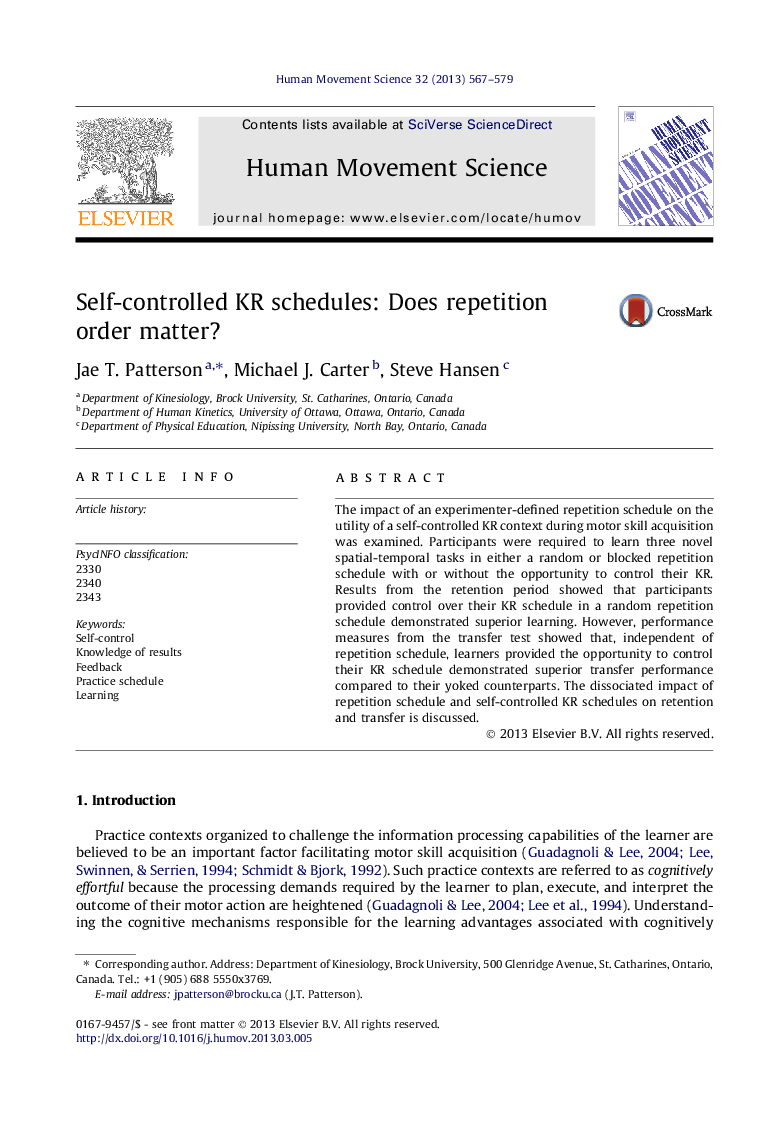| Article ID | Journal | Published Year | Pages | File Type |
|---|---|---|---|---|
| 10459188 | Human Movement Science | 2013 | 13 Pages |
Abstract
The impact of an experimenter-defined repetition schedule on the utility of a self-controlled KR context during motor skill acquisition was examined. Participants were required to learn three novel spatial-temporal tasks in either a random or blocked repetition schedule with or without the opportunity to control their KR. Results from the retention period showed that participants provided control over their KR schedule in a random repetition schedule demonstrated superior learning. However, performance measures from the transfer test showed that, independent of repetition schedule, learners provided the opportunity to control their KR schedule demonstrated superior transfer performance compared to their yoked counterparts. The dissociated impact of repetition schedule and self-controlled KR schedules on retention and transfer is discussed.
Related Topics
Life Sciences
Neuroscience
Cognitive Neuroscience
Authors
Jae T. Patterson, Michael J. Carter, Steve Hansen,
